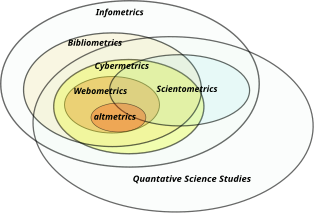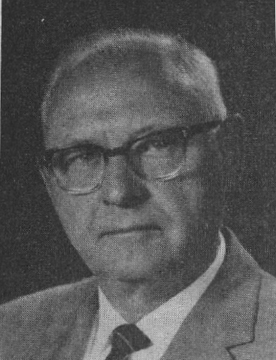Related Research Articles

Information science, documentology or informatology is an academic field which is primarily concerned with analysis, collection, classification, manipulation, storage, retrieval, movement, dissemination, and protection of information. Practitioners within and outside the field study the application and the usage of knowledge in organizations in addition to the interaction between people, organizations, and any existing information systems with the aim of creating, replacing, improving, or understanding the information systems.
In information science and information retrieval, relevance denotes how well a retrieved document or set of documents meets the information need of the user. Relevance may include concerns such as timeliness, authority or novelty of the result.
A recommender system, or a recommendation system, is a subclass of information filtering system that provides suggestions for items that are most pertinent to a particular user. Recommender systems are particularly useful when an individual needs to choose an item from a potentially overwhelming number of items that a service may offer.
The Gerard Salton Award is presented by the Association for Computing Machinery (ACM) Special Interest Group on Information Retrieval (SIGIR) every three years to an individual who has made "significant, sustained and continuing contributions to research in information retrieval". SIGIR also co-sponsors the Vannevar Bush Award, for the best paper at the Joint Conference on Digital Libraries.
Bibliographic coupling, like co-citation, is a similarity measure that uses citation analysis to establish a similarity relationship between documents. Bibliographic coupling occurs when two works reference a common third work in their bibliographies. It is an indication that a probability exists that the two works treat a related subject matter.

Don R. Swanson was an American information scientist, most known for his work in literature-based discovery in the biomedical domain. His particular method has been used as a model for further work, and is often referred to as Swanson linking. He was an investigator in the Arrowsmith System project, which seeks to determine meaningful links between Medline articles to identify previously undiscovered public knowledge. He had been professor emeritus of the University of Chicago since 1996, and remained active in a post-retirement appointment until his health began to decline in 2009.
Nicholas J. Belkin is a professor at the School of Communication and Information at Rutgers University. Among the main themes of his research are digital libraries; information-seeking behaviors; and interaction between humans and information retrieval systems. Belkin is best known for his work on human-centered Information Retrieval and the hypothesis of Anomalous State of Knowledge (ASK). Belkin realized that in many cases, users of search systems are unable to precisely formulate what they need. They miss some vital knowledge to formulate their queries. In such cases it is more suitable to attempt to describe a user's anomalous state of knowledge than to ask the user to specify her/his need as a request to the system.
A web query or web search query is a query that a user enters into a web search engine to satisfy their information needs. Web search queries are distinctive in that they are often plain text and boolean search directives are rarely used. They vary greatly from standard query languages, which are governed by strict syntax rules as command languages with keyword or positional parameters.
The School of Communication and Information (SC&I) is a professional school within the New Brunswick Campus of Rutgers, The State University of New Jersey. The school was created in 1982 as a result of a merger between the Graduate School of Library and Information Studies, the School of Communication Studies, and the Livingston Department of Urban Journalism. The school has about 2,500 students at the undergraduate, masters, and doctoral levels, and about 60 full-time faculty.

Karen Ida Boalth Spärck Jones was a self-taught programmer and a pioneering British computer scientist responsible for the concept of inverse document frequency (IDF), a technology that underlies most modern search engines. She was an advocate for women in computer science, her slogan being, "Computing is too important to be left to men." In 2019, The New York Times published her belated obituary in its series Overlooked, calling her "a pioneer of computer science for work combining statistics and linguistics, and an advocate for women in the field." From 2008, to recognize her achievements in the fields of information retrieval (IR) and natural language processing (NLP), the Karen Spärck Jones Award is awarded annually to a recipient for outstanding research in one or both of her fields.
The term information scientist developed in the latter part of the twentieth century by Wm. Hovey Smith to describe an individual, usually with a relevant subject degree or high level of subject knowledge, providing focused information to scientific and technical research staff in industry. It is a role quite distinct from and complementary to that of a librarian. Developments in end-user searching, together with some convergence between the roles of librarian and information scientist, have led to a diminution in its use in this context, and the term information officer or information professional are also now used.
The following outline is provided as an overview of and topical guide to information science:

Arthur Curley was an American librarian who was listed as one of the 100 most important library leaders of the 20th century by journal American Libraries.

Documentation science is the study of the recording and retrieval of information. Documentation science gradually developed into the broader field of information science.

Frederick Wilfrid ("Wilf") Lancaster was a British-American information scientist. He immigrated to the US in 1959 and worked as information specialist for the National Library of Medicine in Bethesda, Maryland, from 1965 to 1968. He was a professor at the University of Illinois, Urbana, from 1972 to 1992 and professor emeritus from 1992 to 2013. He continued as an honored scholar after retirement speaking on the evolution of librarianship in the 20th and 21st century.
Concept-based image indexing, also variably named as "description-based" or "text-based" image indexing/retrieval, refers to retrieval from text-based indexing of images that may employ keywords, subject headings, captions, or natural language text. It is opposed to Content-based image retrieval. Indexing is a technique used in CBIR.

Information history may refer to the history of each of the categories listed below. It should be recognized that the understanding of, for example, libraries as information systems only goes back to about 1950. The application of the term information for earlier systems or societies is a retronym.

Warren Perry Mason was an American electrical engineer and physicist at Bell Labs. A graduate of Columbia University, he had a prolific output, publishing four books and nearly a hundred papers. He was issued over two hundred patents, more than anyone else at Bell Labs. His work included acoustics, filters, crystals and ceramics, materials science, polymer chemistry, ultrasonics, bonding to semiconductors, internal friction, and viscoelasticity.
The Award of Merit is bestowed by the Association for Information Science and Technology. It is an annual prize to an individual for a lifetime of achievement that recognizes sustained contributions to and/or achievements in the field of information science and/or the professions in which it is practiced. The Award of Merit was first given in 1964 to Hans Peter Luhn.
Tefko Saracevic was a Croatian-born American information scientist who was professor emeritus at the School of Communication and Information at Rutgers University. He was a contributor to the theoretical concept of relevance and a prominent information scientist. He has been President of the Association for Information Science and Technology
References
- ↑ Columbia College (Columbia University). Office of Alumni Affairs and Development; Columbia College (Columbia University) (1955). Columbia College today. Columbia University Libraries. New York, N.Y. : Columbia College, Office of Alumni Affairs and Development.
- ↑ "Human and machine learning: The search for anomalies | Research | UW–Madison".
- ↑ "NSF Award Search: Award # 2041428 - EAGER: Rule Induction Games to Explore Differences between Human and Machine Intelligence".
- ↑ "Kantor, Paul - UW-Engineering Directory | College of Engineering @ The University of Wisconsin-Madison". directory.engr.wisc.edu. Retrieved 2022-07-22.
- Wired Magazine, Issue 6.03, March 1998: "Ant Wisdom for the Web" by James Glave "Professor Paul Kantor's digital-information pheromones sniff out the good stuff on the Web. But keep your antennae up for intellectual fads and poisoned bait."
- Field, Tom. Follow the ants. CIO. Framingham: 1 April 1998. Vol. 11, Iss. 12; p. 25. (interview with Kantor)